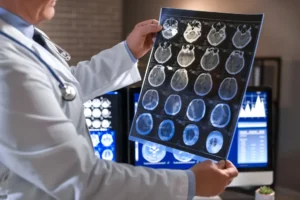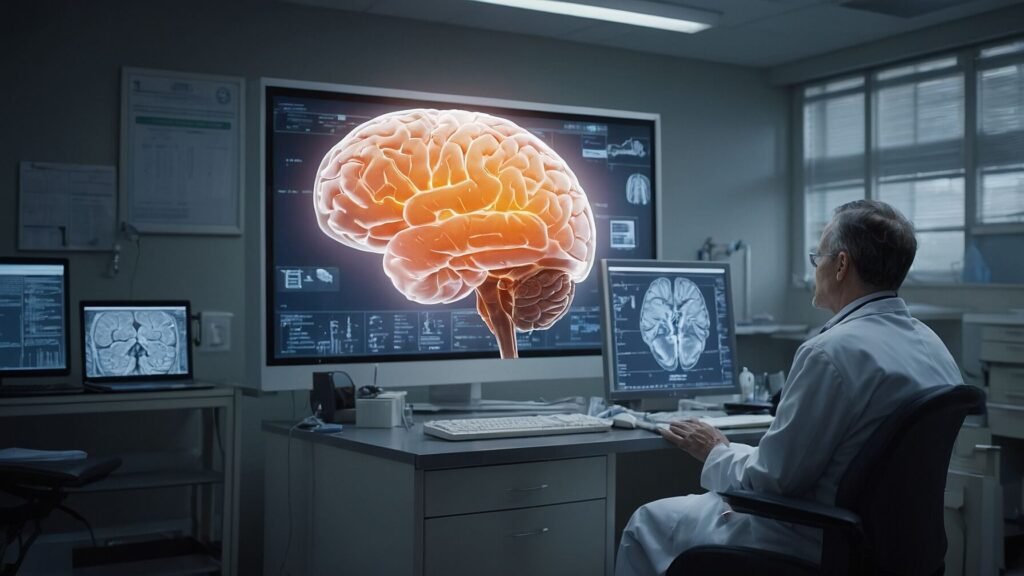
Common Neurological Injuries After Car Accidents
Car accidents are one of the leading causes of neurological injuries, and they can have a lasting impact on your health, often resulting in nerve damage and neurological issues. From mild concussions to severe traumatic brain injuries (TBI) caused by car crashes, these injuries affect brain function and your overall quality of life. Whether you’ve experienced a minor bump or a serious crash, it’s important to understand the different types of neurological disorders that can result, as well as the symptoms, diagnosis, and potential treatments. Let’s take a closer look at these injuries, particularly how they occur when the brain experiences movement of the brain, and what you can do about them.
What Are the Most Common Neurological Injuries After a Car Accident?
Car accidents are one of the leading causes of neurological injuries, and they can have a lasting impact on your health, often resulting in nerve damage and neurological issues. From mild concussions to severe traumatic brain injuries (TBI) caused by car crashes, these injuries affect brain function and your overall quality of life. Whether you’ve experienced a minor bump or a serious crash, it’s important to understand the different types of neurological disorders that can result, as well as the symptoms, diagnosis, and potential treatments. Let’s take a closer look at these injuries, particularly how they occur when the brain experiences movement of the brain, and what you can do about them.
Traumatic Brain Injuries (TBI)
Spinal Cord Injuries
Spinal cord injuries are also common in car accidents, especially when the force of the crash is significant. The impact may fracture, compress, or dislocate the vertebrae, which can lead to severe neurological issues. These injuries can result in partial or complete paralysis, depending on the injury’s location and severity. Spinal cord injuries can also affect mobility, sensory function, and other bodily functions like breathing or bladder control, requiring intensive care and rehabilitation.
Whiplash-Associated Disorders
Whiplash is a frequent injury, especially in rear-end collisions. While it’s often considered a soft tissue injury, whiplash can lead to neurological complications. The sudden back-and-forth motion of the neck during a crash can damage the cervical spine and affect the nerves, leading to serious injuries that may require legal assistance from an injury attorney. Symptoms may include neck pain, headaches, dizziness, and cognitive issues. These symptoms can sometimes last for months or even years, resulting in chronic pain and ongoing neurological problems.
How Do Car Accidents Affect the Brain and Nervous System?
Impact of Sudden Acceleration/Deceleration on the Brain
In a car accident, the sudden change in speed – whether it’s rapid acceleration or deceleration can have a significant effect on the brain. When the car comes to a sudden stop or changes direction quickly, the brain may collide with the inside of the skull, causing bruising, bleeding, or tears to brain tissue. This is known as a coup-contrecoup injury, which can lead to both focal and diffuse damage in the brain, often seen in car accident injuries. The severity depends on factors like the speed of the crash, the direction of impact, and whether or not you were wearing a seatbelt, as injuries are common in high-speed collisions. In some cases, the brain may rotate inside the skull, causing further damage to its neural connections.
What Are the Long-Term Neurological Consequences of Car Accidents?
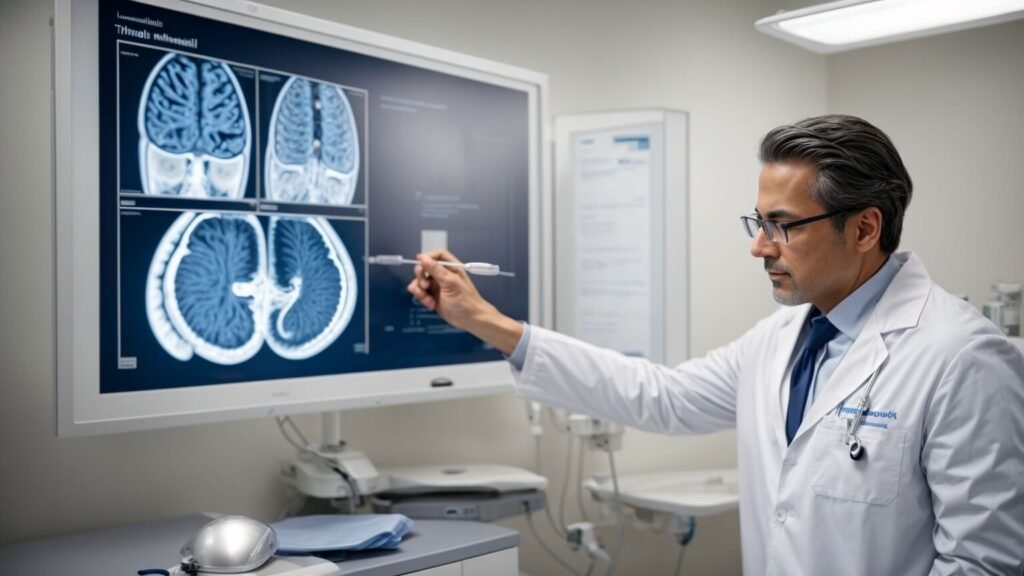
What Are the Symptoms of Neurological Injuries After a Car Accident?
Immediate Symptoms of Brain Injuries
- Loss of consciousness or confusion
- Headaches, dizziness, or nausea can be common symptoms of a cause of traumatic brain injury.
- Vomiting or feeling disoriented
- Seizures or trouble staying awake can be serious indicators of potential brain injuries often resulting from a car accident.
- Clear fluid draining from the ears or nose
- Dilated pupils can indicate serious conditions, such as swelling in the brain, following a head injury.
Delayed Symptoms of Neurological Injuries
- Persistent headaches or migraines can be a sign of underlying issues related to head injuries that occur during sports injuries or accidents.
- Difficulty concentrating or remembering things may indicate bleeding in the brain following an accident.
- Sleep disturbances, like trouble falling or staying asleep, can be a result of swelling in the brain following an injury.
- Sensitivity to light or sound
- Mood changes, such as irritability or depression
- Cognitive issues, like trouble problem-solving, decision-making, or multitasking
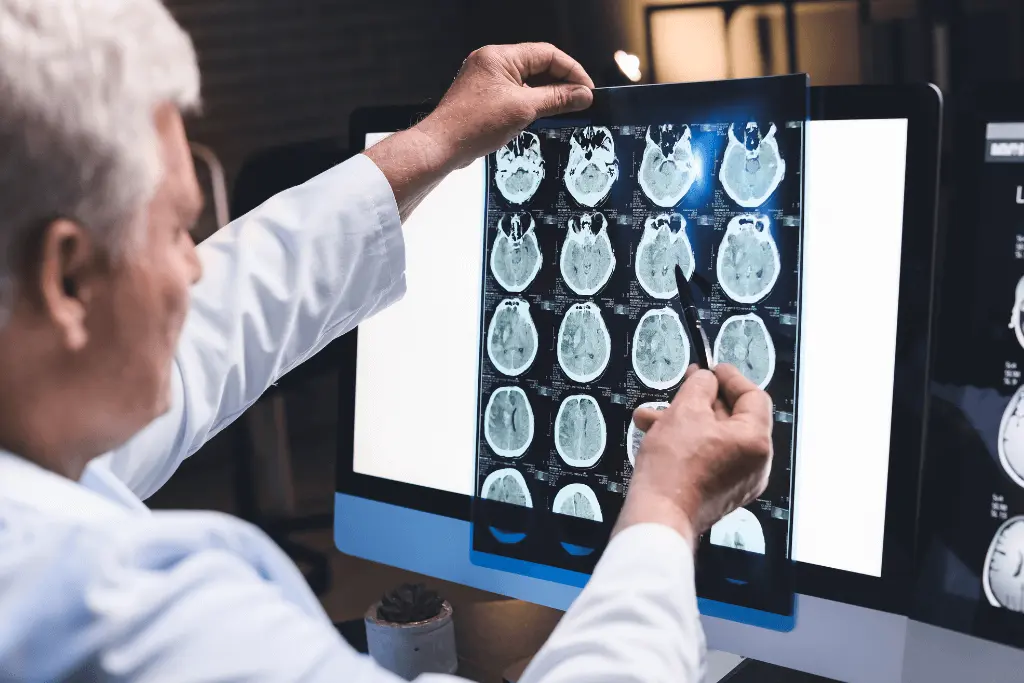
When to See a Neurologist After a Car Accident?
How Are Neurological Injuries Diagnosed After a Car Accident?
If you’re experiencing neurological symptoms after a car accident, a neurologist will start with a comprehensive evaluation to determine the cause of your symptoms. This typically includes a physical exam to check reflexes, coordination, muscle strength, and cognitive function.
Neurological Examinations and Tests
- Reflex tests to check nerve function
- Muscle strength and coordination tests are essential for assessing potential damage to the human brain after an injury.
- Cognitive tests to assess memory, attention, and problem-solving skills
Imaging Techniques for Brain Injuries
Importance of Prompt Medical Evaluation

What Treatments Are Available for Neurological Injuries After a Car Accident?
Acute Care for Serious Injuries
- Remove blood clots or repair skull fractures
- Relieve pressure on the brain
- Stabilize the spine in case of spinal cord injuries resulting from a traffic accident.
Rehabilitation for Brain and Nerve Damage
- Physical therapy may be essential for recovery from injuries that damage brain tissue. to help restore mobility and strength, especially after suffering a brain injury in a car accident.
- Occupational therapy to help with daily activities and improve independence
- Speech therapy is often recommended for patients recovering from head injuries that occur during sports injuries. for patients who have difficulty with speech or swallowing
- Cognitive rehabilitation is essential for individuals recovering from common brain injuries, particularly those who have suffered a brain injury in a car accident. to address memory, concentration, and problem-solving skills that may be affected by injuries from a car accident or motorcycle accident
Long-Term Management of Chronic Neurological Problems
- Medications to manage pain, muscle spasms, or mood disorders
- Alternative therapies such as acupuncture, massage, or mindfulness practices to help reduce symptoms and improve overall well-being
- Assistive technologies like speech-to-text software or mobility aids for those with lasting disabilities
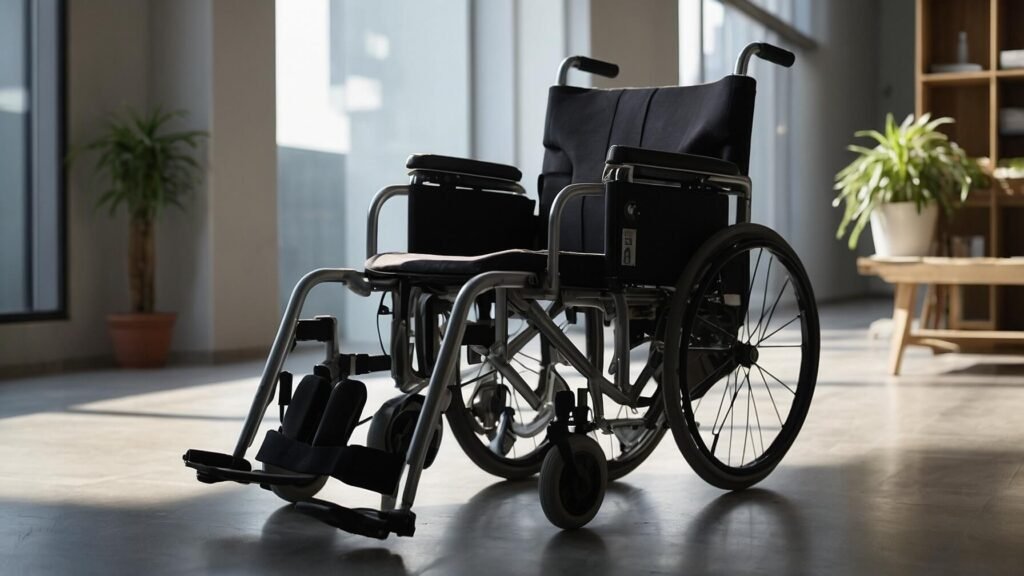
Can Neurological Injuries from Car Accidents Lead to Permanent Disabilities?
What Factors Influence Recovery from Neurological Injuries After a Car Accident?
- Severity of the injury: More severe injuries may take longer to heal and may result in lasting impairments.
- Understanding the location of the injury is crucial for determining the appropriate treatment for nerve damage and neurological issues.: Brain injuries that affect key areas of function may have more significant effects.
- The age and health of the individual can significantly affect the recovery from common injuries like those sustained in a car accident.Younger, healthier individuals often recover better due to their greater neuroplasticity (the brain’s ability to reorganize itself), especially after head and neck injuries.
- Timeliness of treatmentEarly intervention for head injuries can significantly improve recovery outcomes.
Support for People with Traumatic Brain Injury
- Support groups offer emotional support and the chance to connect with others who understand the challenges you’re facing.
- Vocational rehabilitation for individuals recovering from brain injuries from car accidents is crucial for reintegration into the workforce. services can assist with finding new career paths or adjusting to your previous job with a disability.
- Assistive technologies like speech-to-text software or mobility devices can help you maintain independence.
- Legal support from personal injury lawyers who specialize in neurological injuries can help you secure the compensation you need to cover medical expenses and long-term care.
Experience World-Class Neurological Care Today
At Victory Medical Group, our board-certified neurologists specialize in delivering advanced, personalized treatment plans for neurological injuries resulting from car accidents. We understand that every case is unique, That’s why our solutions are designed to meet your specific needs.
Our network spans a wide range of licensed locations, including South Carolina, Georgia, Florida, Alabama, Louisiana, Montana, Michigan, Indiana, Ohio, and Maine. With same-day appointments available, you can begin your journey to recovery without delay.
Call us now at (678)-536-1753 or schedule your consultation and experience the exceptional care you need.
Frequently Asked Questions (FAQ)
What should I do if I think I have a brain injury after a car accident?
If you think you may have sustained a brain injury from an automobile accident, it’s important to see a doctor as soon as possible. Even if symptoms seem mild, they can worsen over time. Seek medical attention within 72 hours of the accident for a proper evaluation of any potential head and neck injuries.
How long does it take to recover from a brain injury after a car accident?
Recovery time for head injuries may require consideration of the severity of the injury. Mild concussions may heal in a few weeks, while more severe brain injuries could require months or even years of treatment and rehabilitation under injury law. It’s essential to follow your doctor’s guidance throughout your recovery from a cause of traumatic brain injuries.
Can neurological injuries from car accidents be treated virtually?
Yes, many neurological conditions can be evaluated and treated through virtual consultations, especially for concussion management and follow-up care after an injury in a car accident. At Victory Medical Group, we offer convenient virtual consultations with specialized neurologists who can guide your treatment plan for car accident injuries.
How do I know if I need to see a neurologist?
If you experience symptoms like persistent headaches, dizziness, difficulty concentrating, memory problems, or mood changes after a car accident, it’s time to consult a neurologist. Early intervention can help prevent long-term complications and ensure the best possible recovery.
Contact Victory Medical Group
If you’ve been in an auto accident and are experiencing neurological symptoms, our team at Victory Medical Group is here to help. Schedule a virtual consultation today, and get the expert care you need for your recovery from potential nerve damage and neurological issues.
Stay informed with expert insights on neurology, treatments, and wellness. Browse our latest articles to discover valuable tips, research updates, and expert advice on neurological health.
What to Expect During a Virtual Neurology Consultation As the...
Read MoreHow Online Neurologists Provide Legal Reports for Injury Claims
How Online Neurologists Provide Legal Reports for Injury Claims Neurologists are...
Read MoreBenefits of Virtual Neurology Consultations for Injury Victims
Benefits of Virtual Neurology Consultations for Injury Victims When someone...
Read MoreSymptoms That Require a Neurology Consultation After an Auto Accident
Symptoms That Require a Neurology Consultation After an Auto Accident...
Read More
